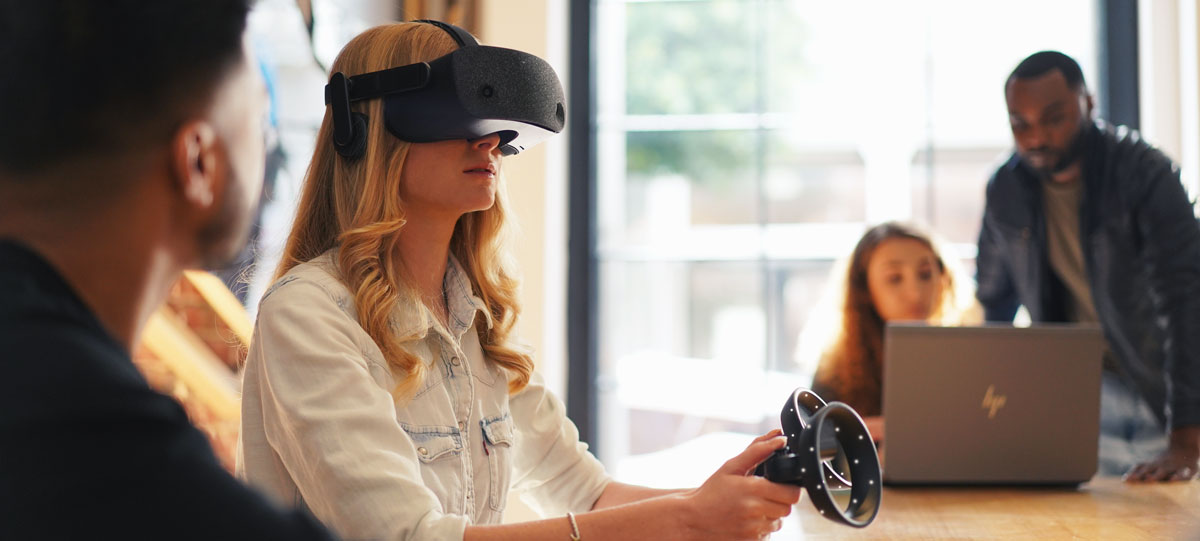
If you enjoy new gadgets – or if you have children – there’s every chance you have a virtual reality (VR) headset at home. As a consumer technology, paired with a proliferation of apps, VR has been making waves for the immersive experiences it delivers. VR isn’t just for gamers and kids, though; business-grade devices have been hitting the market recently, with industries from education to construction quick to latch onto its potential.
At a Brisbane school’s recent art show, parents were wowed by youngsters integrating art projects about world landmarks with VR technology that let them ‘visit’ cities such as Rome and Athens to see their work in situ. Elsewhere, teens have access to a safe environment for conducting chemistry experiments that could otherwise prove explosive. They can explore Mars without ever having the classroom. If there is no teacher quite like experience, then today’s students are getting an education beyond the wildest dreams of their parents.
Not surprisingly, universities have been quick to identify the potential of VR to enhance research opportunities. VR is being used to tackle real-world problems; athletes and aging populations alike are set to benefit from research into physical therapy methods, while findings in molecular research can save wasted research time into drug development techniques.
It isn’t just educators getting in on the VR act. Tourism organisations can train staff before they arrive at a resort and give guests an immersive ‘sneak peek’ that will tempt them into booking a holiday. Who wouldn’t want to visit the Great Barrier Reef or Milford Sound for real after experiencing a brief taste first?
The training potential is especially pertinent to industries like architecture and city planning, where bringing a vision to life can both iron out potential problems and share the dream with investors and communities. Entering a building that hasn’t yet been built and examining its structure is a far more persuasive experience than reading stacks of planning papers, and creating that space might identify areas for improvement far more readily.
If you’ve been around IT for a while, it won’t surprise you that the transition from consumer to serious business tool has been enabled by the likes of HP and Intel®, whose futuristic-styled HP Z VR range includes every virtual reality essential, from backpack harness and PC to hardware essentials like hot-swappable batteries. Nobody, after all, wants their experience cut short by lack of power.
There is a serious side to the experience that has put VR high on the list of industries not always associated with being early adopters. Any industry where safety is a significant consideration can take advantage of VR to improve workplace health and safety. If you can train labourers before letting them loose on a dangerous worksite or introduce heavy equipment operators to their tools from the safety of an office, risk is avoided, and costs may be reduced. Even the insurance company will be happy.
Want to see how VR can be integrated into your business plan? Look out for the Innovation Symposium coming to Darwin in 2020, or chat to the friendly Area9 team.

Intel and the Intel logo are trademarks of Intel Corporation or its subsidiaries in the U.S. and/or other countries.
